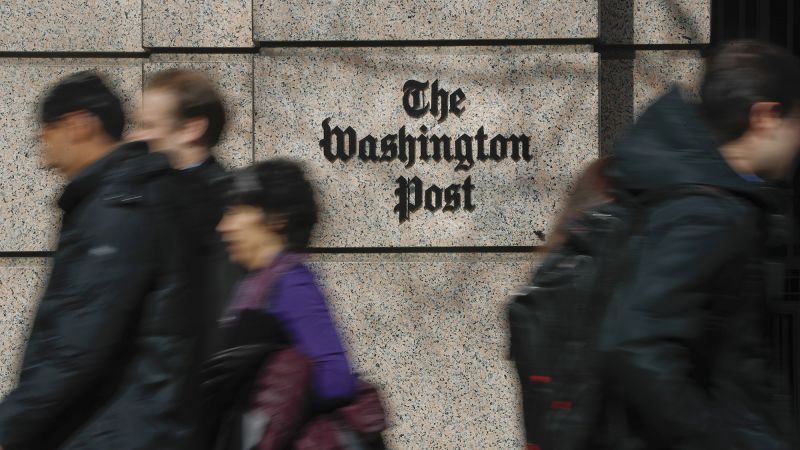The Washington Post recently made headlines with the announcement of its new Opinion editor, Adam O’Neal, signaling a significant shift in the direction of the publication’s editorial stance. This reshuffle comes amid considerable scrutiny of the Opinion section and follows the departure of the previous section chief—a decision that highlights the evolving landscape of news media. As the media outlet undergoes changes, O’Neal’s appointment represents both continuity and a new chapter for The Post’s editorial voice.
O’Neal, who is currently serving as The Economist’s Washington correspondent, was announced as the new Opinion editor through an official post on X, accompanied by an introductory video featuring the editor. This announcement underscores the importance of digital platforms in reaching audiences today. O’Neal emphasized a commitment to being “stalwart advocates of free markets and personal liberties,” while asserting that the editorial philosophy will be rooted in “fundamental optimism about the future of this country.” His aspirations for the Opinion section signal a return to certain ideological tenets that align closely with the beliefs of some conservatives.
Continuing with his vision, O’Neal assured readers that the Opinion section will not “lecture” them about ideologies or demand that they adopt specific views on various policies. This approach resonates with sentiments expressed four months earlier by The Washington Post’s owner, Jeff Bezos, who articulated a desire for the Opinion section to serve as a platform that champions free markets and personal liberties. The implications of this stance were not universally welcomed; internal backlash emerged, notably from prominent Post figures like Marty Baron, the former executive editor who previously led the newspaper to win an impressive eleven Pulitzer Prizes.
In a post earlier this year, Bezos declared that the Opinion section would focus on two main pillars: personal liberties and free markets. He went on to clarify that other viewpoints contrary to these pillars would not be invited for publication within the section. This direction came in the context of a larger reshaping of The Post’s editorial output and was indicative of deeper ideological shifts within the media landscape—a landscape where public sentiment often fluctuates and editorial stances face ongoing challenges.
Additionally, the context around this leadership shift is significant. O’Neal steps into the editor role following the resignation of his predecessor, David Shipley, who opted to leave amidst intense criticism from both staffers and readers alike. Notably, Shipley faced condemnation regarding the editorial board’s decision to refrain from endorsing Kamala Harris’ presidential bid, which resulted in a series of resignations from editorial board members and led to over 200,000 cancellations of digital subscriptions. Further compounding the turmoil was Shipley’s controversial refusal to publish a satirical cartoon following the contentious relationship between Bezos and former President Donald Trump.
Since Shipley’s exit, deputy Opinion editor Mary Duenwald has been serving as the interim chief for the section, awaiting O’Neal’s official start date. On the day of the announcement, Will Lewis, the chief executive and publisher of The Post, communicated to staffers in an email that O’Neal is keenly aware of the importance of relevant and accessible opinion coverage—crucial for a readership that may feel underserved.
In Lewis’s message, he echoed Bezos’ sentiments, asserting that the new direction for the Opinion section is not tied to any single political party but rather is an opportunity to highlight fundamental American values. This represents an ambitious mission for O’Neal as he embarks on his tenure. His appointment arrives at a time when The Post announced voluntary buyouts to lengthy tenured staff across various departments, further indicating ongoing reorganizations within the paper.
The tenure of O’Neal as the new Opinion editor could play a pivotal role in the future dialogue of The Washington Post as it seeks to navigate the complex relationship between its ideological foundations and the ever-changing demands of its audience. As these shifts unfold, the potential for driving impactful conversations within America remains paramount for the legacy publication.



